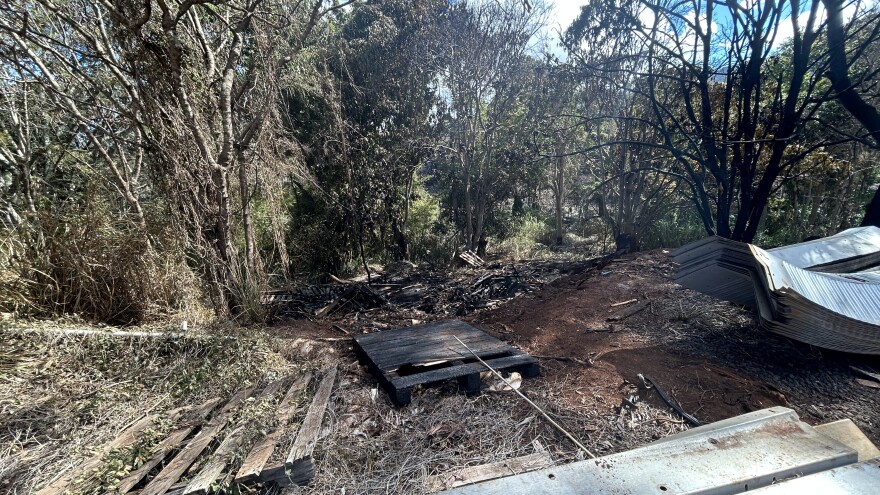A fundraiser has been set up to help farming operations that were impacted by last month's wildfires in Kunia.
The largest in a series of fires in the area burned about 250 acres of land, including around 75 acres of crops and farming equipment on Oʻahu.
The estimated cost of the damages is about $3.3 million, according to the Hawaiʻi Agricultural Foundation, which oversees about 800 acres of farm land in the Kunia area. Most of that comes from the value of destroyed specialty crops like breadfruit, mango and banana.
It just missed the Kunia Village Development Center, which is home to businesses and dozens of housing units for agricultural workers.
While that's a relief, KVDC President Stephanie Whelan said the destroyed land can have a dramatic impact on farming operations, and for an extended period.
“First you've got to clear up the mess, then you’ve got to prepare the field. … You've got to plant the field, you've got to irrigate the field, and then finally harvest the field. So, when farmers get wiped out, it's pretty devastating to their income,” Whelan said.
She added that because farmers often rotate the crops they grow, they have to plan ahead.
But after a disaster like a wildfire, that gets disrupted, too.
“You design your planting like that, and if it all is wiped out, you just wiped out a year or more of thinking,” Whelan said.
A fundraiser dubbed “Kōkua Kunia” is being hosted by KVDC, HAF, Kō Hana Distillers and Nalo Farms to help the impacted farmers recover from their losses. All the proceeds will go to the handful of operations that said they were impacted.
Kō Hana, which is a resident at KVDC along with Nalo Farms, lost 15 acres of sugarcane it was growing nearby that it used in its rum.
The groups aim to raise $100,000 during the fundraiser, and while it's just a fraction of what was lost, it can help farmers get back to growing on the impacted land.
“They're … smaller family farms and a lot of them lost equipment and their crops. We're just trying to raise immediate funding for them because they're needing to buy new equipment,” said Tiffany Tubon, Kō Hana's brand manager. “They have to install new irrigation and buy seeds and supplies to get them back up and farming as soon as possible.”
Most of the funds raised will be distributed among the impacted farmers, and some will be used for fire mitigation efforts.
"It's heartbreaking to see my parents' farm, a place they poured years of love and labor into, destroyed in a single wildfire," said Wannisa Panhaphon, the daughter of one of the farmers whose land was impacted, in a statement released by Kō Hana. "The many fruit trees they had been growing for years are gone, along with the crops and farm supplies they worked so hard to maintain. In just one day, everything they built and cared for was reduced to ashes.”
The fundraiser is ongoing and ends with a community fundraising event on Sept. 20 at the Kō Hana distillery.
It’s not yet entirely clear what started the Kunia fires, although a suspect has been arrested on suspicion of arson.
More information about the fundraiser and how donations can be made can be found at Kō Hana's website. Donations can also be made to HAF, a nonprofit, with a note indicating that the money is meant for the impacted farmers.





